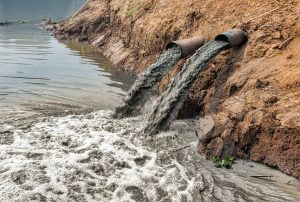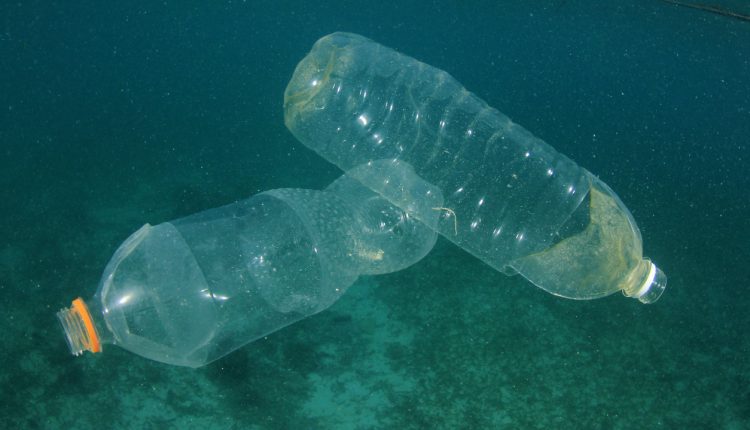On 5 July 2021, the European Court of Auditors (ECA) published a report on the application of the polluter pays principle in the European Union. This report was intended to determine whether the principle was appropriately applied in four EU environmental policy areas, namely industrial pollution, waste, water, and soil.
Two main issues justified this audit:
- Pollution represents a significant cost for society and is a key concern for EU citizens.
- The polluter pays principle has a key role in enabling Europe to reach its environmental objectives in an efficient and fair manner.
The polluter pays principle was created for the first time in 1972 by the Organisation for Economic Co-operation and Development (OECD). In 1992, the United Nations Declaration on Environment and Development recognised this principle as one of the twenty-seven guiding principles for future sustainable development.
The scope of the polluter pays principle has significantly increased since its creation. Indeed, at first, it only concerned the prevention and control costs against pollution. It was then extended to the costs of the measures taken by the authorities to address pollutant emissions and was then further extended to cover environmental liability. In other words, polluters should theoretically bear all the costs of the environmental damage they cause. Consequently, the European Commission needs to draft legislation based on the polluter pays principle and all Member States need to transpose, apply, and enforce environmental directives and regulations.
In France, the polluter pays principle is covered by Article L. 110-1 of the French Environmental Code according to which “the costs resulting from the prevention, reduction of pollution and fight against such pollution shall be borne by the polluter“. This principle has a constitutional value given that it is implicitly mentioned in the body of the Environmental Charter, which provides that “any person shall contribute to remedying damage caused to the environment, in the conditions laid down by the law” (Article 4). Consequently, the polluter pays principle is used as a legal basis for the new rules on the indemnification of environmental damage created by the Biodiversity Law of 2016.
In the scope of its audit, the ECA has noted that the polluter pays principle is not applied uniformly. Indeed, it is not applied to the same extent depending on the environmental policy area:
- With regards to the industrial sector, the polluter pays principle would be relatively well applied to the most polluting installations. This would not, however, be the case of residual pollution, the cost of which for society is still high according to the ECA. Indeed, in most Member States, polluters would not bear the cost of the emissions they generate when they are below the authorised thresholds.
- With respect to waste, the ECA recognises that the legislation takes the polluter pays principle into account, but it does not guarantee that the polluters will pay the entire costs of the pollution. Public investments are often necessary to overcome the financing deficit.
- In the area of water pollution, the result is clear: polluters would not bear all the costs of their pollution. For instance, EU households would pay most of the cost of water supply and sanitation even though they consume only 10% of this water.
- Lastly, the ECA regrets the absence of EU legislative instruments with regards to soil pollution and the cleaning-up of polluted sites. While some Member States have very comprehensive national legislation in this respect, this is unfortunately not the case for each one of them. The Court however recognises that the application of the polluter pays principle in the soil pollution area is not easy due to the difficulty in identifying the responsible polluters in the event of diffuse soil contamination.
 The ECA concludes its report by stating that the coverage and application of the polluter pays principle is still widely incomplete. The Court further notes that the budget of the European Union is often used to finance decontamination actions, the costs of which should, pursuant to the polluter pays principle, be borne by the polluters themselves.
The ECA concludes its report by stating that the coverage and application of the polluter pays principle is still widely incomplete. The Court further notes that the budget of the European Union is often used to finance decontamination actions, the costs of which should, pursuant to the polluter pays principle, be borne by the polluters themselves.
As a result, to help better integrate this principle, the ECA has issued three recommendations for the attention of the European Commission:
- Firstly, it encourages it to assess the scope for strengthening the integration of the polluter pays principle into environmental legislation, by the end of 2024. The ECA suggests that the Commission review downwards the authorised emissions thresholds to reduce residual pollution and focus its actions on the fight against diffuse water pollution, regardless of its source.
- Furthermore, the ECA suggests that the Commission consider reinforcing the application of the Environmental Liability Directive, by improving the criteria used to define the environmental damage to which the Directive should apply and by increasing the use of financial guarantees.
- Lastly, the ECA suggests protecting EU funds from being used to finance projects that should be funded by the polluter. To do so, the Court invites the Commission to check that the funds of the European Union can only be used for decontamination purposes provided that the competent authorities have done all they could for the polluter to pay for its pollution. The Court of Auditors also counts on the use of financial guarantees covering environmental risks that should, in its opinion, be made compulsory. Today, seven Member States, namely the Czech Republic, Ireland, Spain, Italy, Poland, Portugal and Slovakia, require a financial guarantee for all or part of the polluters’ environmental liabilities.
This report will undoubtedly push the European Commission to legislate and order the Member States to all have a homogeneous approach to the polluter pays principle, irrespective of the type of pollution at stake. Companies should anticipate this when entering into Lease or Purchase agreements of sites and/or buildings to ensure that any and all pollution that may be identified in the future remains the burden of the previous owner for instance. Indeed, there is a limit to the polluter pays principle which is of significant importance: contractual clause stating otherwise.
About the author: Sylvie Gallage-Alwis is a partner at the Paris office of specialist commercial disputes law firm, Signature Litigation.
With special thanks to Clara Heising, trainee at Signature Litigation.




